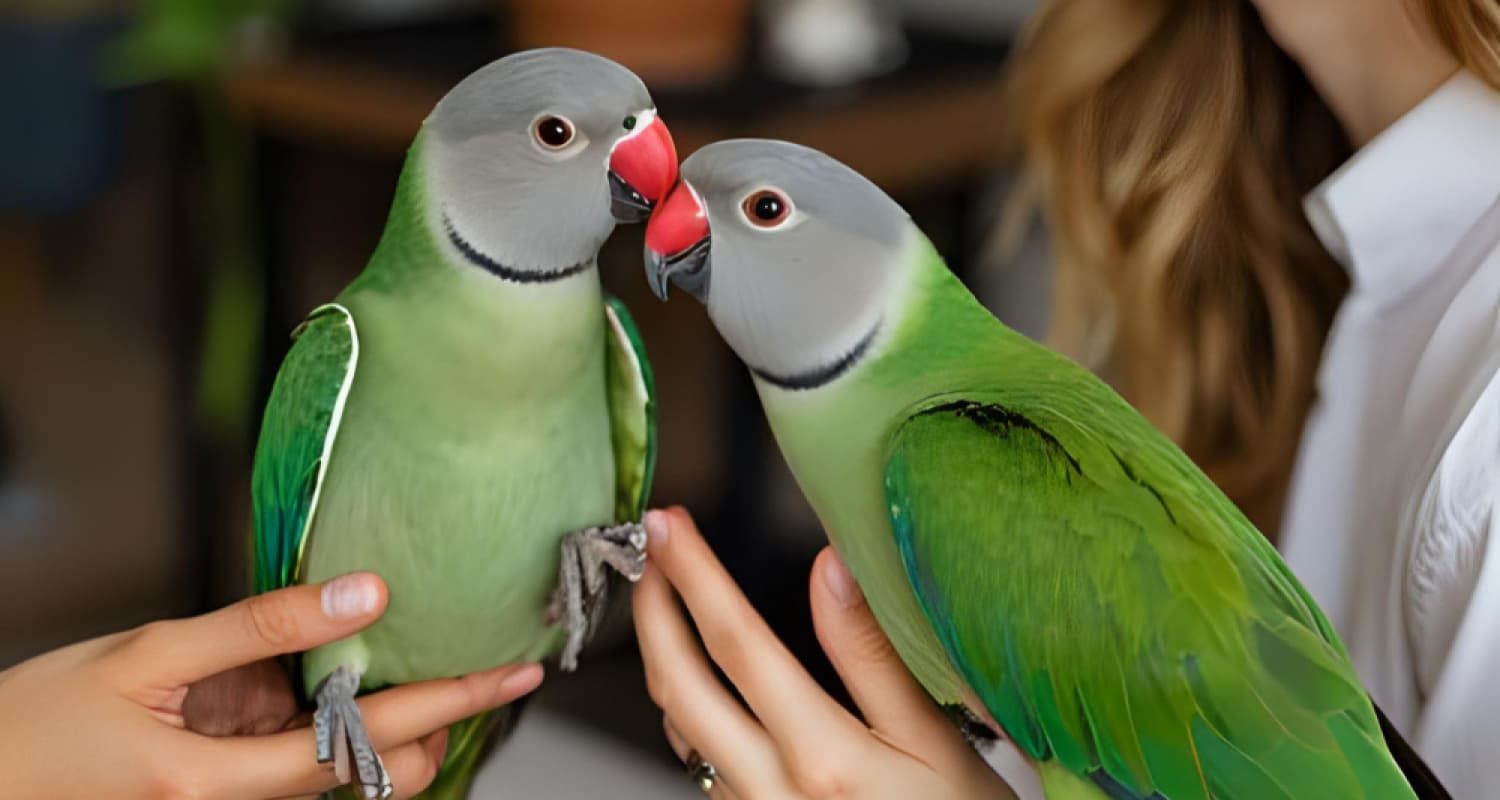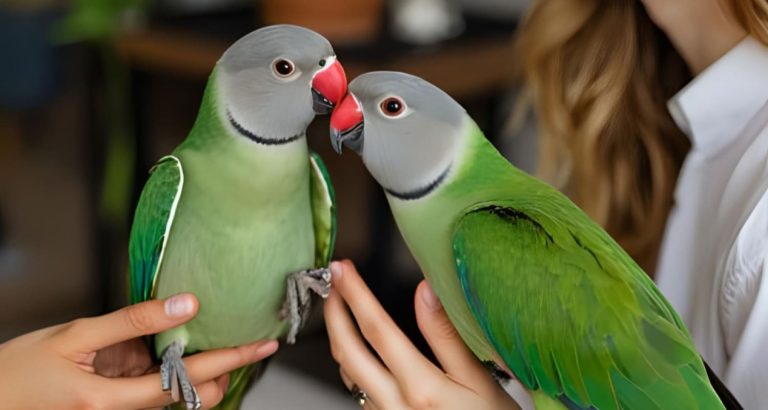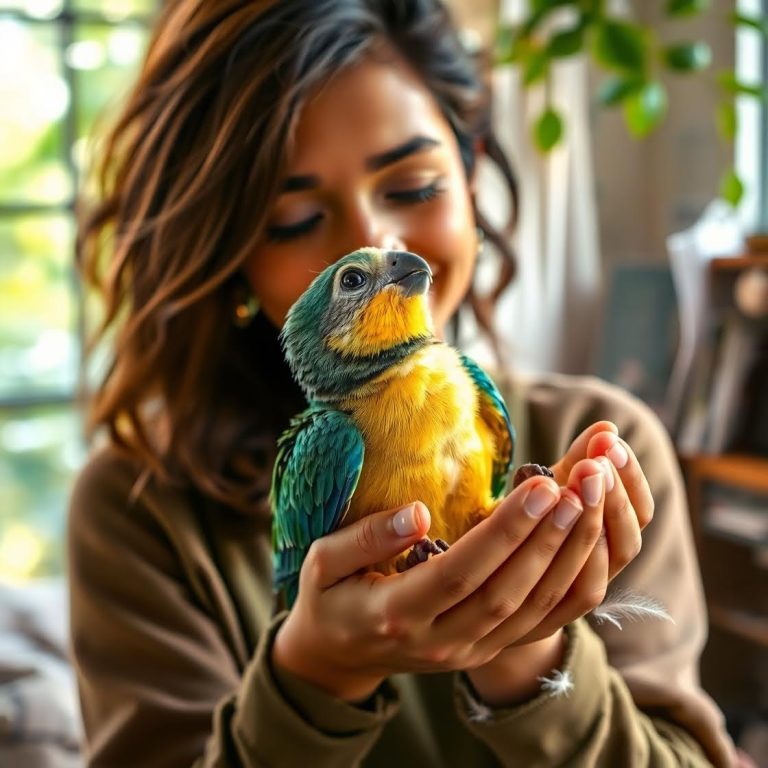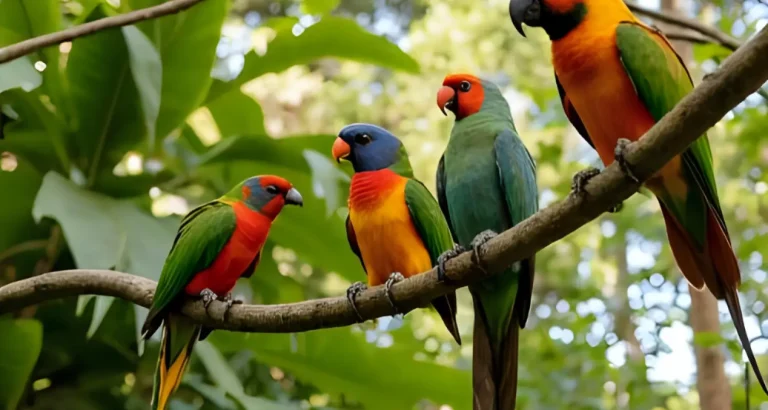
How to Find the Best Bird Sitter in Toronto & Mississauga

Leaving your beloved feathered friend behind for a trip is never easy. Unlike a dog or cat, a bird is a creature of routine and can be highly sensitive to changes in their environment. The person you choose to care for them is not just a “pet sitter”—they are a temporary guardian responsible for your bird’s physical health, mental well-being, and emotional stability.
This complete guide will walk you through the essential steps and key questions to ask to ensure you find a compassionate, knowledgeable, and reliable bird sitter in Toronto or Mississauga.
Step 1: Start Your Search Early and Strategically
Don’t wait until the week before your trip to start looking. The best bird sitters, especially those with specialized avian knowledge, are often booked weeks or even months in advance, particularly during holidays and peak vacation seasons.
Where to Look:
- Dedicated Bird-Sitting Services: These are often the best starting point. Services like Bird Sitting Toronto specialize exclusively in avian care, meaning their staff is well-versed in the unique needs of various bird species, from finches to macaws. They understand the intricacies of diet, enrichment, and stress signals.
- Reputable Pet-Sitting Platforms: Websites like Pawshake or House Sitter Canada can be useful, but you must use their filters carefully. Look specifically for sitters who list “birds” or “exotic pets” in their profiles and read their reviews with a critical eye, looking for testimonials from other bird owners.
- Veterinarian or Avian Specialist Referrals: Your bird’s vet is an excellent resource. They often have a list of trusted individuals or services they recommend to their clients. This is a great way to find a sitter who is already familiar with avian health.
- Local Bird Clubs and Forums: Connecting with other bird owners in the Toronto and Mississauga area is an invaluable way to get personal recommendations. Fellow bird lovers are often the best source for finding a truly exceptional sitter who goes above and beyond.
Step 2: The Critical “Meet and Greet”
Once you have a few potential sitters in mind, the next step is a face-to-face meeting. This is a non-negotiable part of the process, as it allows you to assess the sitter’s personality, professionalism, and, most importantly, their interaction with your bird. A good sitter will insist on this meeting as well.
During the “Meet and Greet,” pay close attention to the sitter’s demeanor. Are they calm and patient? Do they seem genuinely enthusiastic about your bird? A person’s energy can have a big impact on a sensitive animal.

Step 3: Ask the Right Questions
This is where you determine if a sitter is a good fit. Beyond basic availability and rates, the questions you ask can reveal a wealth of information about their expertise and preparedness.
- Experience: “What is your experience with birds, specifically my bird’s species (e.g., Cockatiel, African Grey)? How many years have you been bird sitting?”
- Emergency Protocol: “What is your plan if my bird shows signs of illness or has an emergency? Do you have a relationship with an avian veterinarian? Can you take my bird to my vet if needed?”
- Daily Routine: “Can you describe a typical visit? How long will you spend with my bird each day? What do your visits include (e.g., feeding, water change, cage cleaning, playtime, socialization)?”
- Communication: “How will you keep me updated while I’m away? Will you send daily photos or videos? Is it okay for me to call or text you for updates?”
- Environment (for boarding): If you’re considering boarding, you must see the facility. “Will my bird be housed alone or with other birds? What is your sanitation protocol for the cages? What measures do you take to prevent the spread of disease?”
- Dietary and Medical Needs: “Are you comfortable administering medication (if applicable)? Are you aware of common foods toxic to birds?”
A knowledgeable sitter should be able to answer these questions confidently and with specific examples.
Step 4: The Final Checks
Before you book, there are a few final but crucial steps to take.
- Check References: Ask for contact information for at least two previous bird-sitting clients. When you call, ask them about their experience, the sitter’s reliability, and how their bird seemed upon their return.
- Create a Detailed Care Guide: Provide the sitter with a written document that covers everything: your bird’s feeding schedule, specific diet, cage cleaning routine, favourite toys and songs, and a list of emergency contacts, including your vet and a close friend or family member.
- Review Their Policies: Confirm their payment structure, cancellation policy, and what happens in the event of unforeseen circumstances, like a flight delay.

Your Peace of Mind is Priceless
Ultimately, finding the right bird sitter is about more than just finding someone to feed your pet. It’s about entrusting a member of your family to someone else’s care. By taking the time to thoroughly research, interview, and prepare, you can ensure your bird is in a safe, loving, and stimulating environment. The peace of mind you gain is worth every extra step.
For those in Toronto and Mississauga looking for a service that takes avian care as seriously as you do, a dedicated provider like Bird Sitting Toronto can be the perfect solution.
Frequently Asked Questions (FAQs)
- What is the difference between in-home bird sitting and boarding? In-home bird sitting means a professional comes to your home to care for your bird. This is ideal for birds that are easily stressed by changes in their environment. Boarding, or a “bird hotel,” involves taking your bird to a dedicated facility or the sitter’s home. This can be a great option if the facility is designed with birds in mind, providing a safe and stimulating environment with other birds (supervised, of course).
- How much does a bird sitter cost in Toronto or Mississauga? The cost can vary widely based on the service type and the duration of care. In-home visits might be priced per visit (e.g., $20-$50), while boarding is typically a daily rate. The price may also be higher for larger birds or those with special needs. Always ask for a detailed quote upfront.
- What should I look for in a bird sitter’s references? When you call references, ask about the sitter’s reliability and communication. Did they provide regular updates? Was the bird’s health and happiness a clear priority? You want to hear that the sitter was punctual, professional, and knowledgeable about avian care.
- Can a bird sitter administer medication to my bird? This is a critical question to ask. Many experienced bird sitters are comfortable with administering oral medications or even injections, but you should verify this and ensure they have a clear understanding of the dosage and schedule. If your bird has a complex medical condition, it’s best to discuss this with a specialized service.
- How far in advance should I book a bird sitter? For holiday periods and long weekends, it’s best to book at least 2-3 months in advance. For regular, non-holiday periods, a few weeks’ notice is generally sufficient, but the sooner you book, the more likely you are to secure the perfect sitter.
Government and Official Resources for Bird Owners
- City of Toronto Animals Bylaw: This municipal bylaw outlines the standards of care for all animals, including birds, within city limits. While it doesn’t specify regulations for pet-sitting, it is the foundation for all animal-related conduct and welfare.
- Resource: City of Toronto Animals Bylaw
- Provincial Animal Welfare Services (PAWS) Act, 2019: This is a crucial piece of Ontario provincial legislation that protects animals from neglect and abuse. The act provides a framework for humane care, and any professional pet sitter must operate in accordance with its rules. It also provides a public reporting mechanism for concerns about animal welfare.
- Canadian Food Inspection Agency (CFIA): While primarily a federal body for regulating imports, the CFIA is a vital resource for bird owners, especially concerning avian health and disease prevention. Their information on avian influenza and other diseases is essential for any bird owner who travels or houses their bird in a facility with other birds.
- Resource: Canadian Food Inspection Agency (CFIA)
Contact Us Today for a Quote!
Taking Care of Your Birds with the Utmost Care.
Be certain that your bird is well cared for while you are away.
Get Quote: https://birdsittingtoronto.ca/booking-page/
Categories
Our Blogs


Amherst Veterinary Hospital: Exceptional Care for Your Beloved Companions

Bird Beak Trimming Services: Keeping Your Feathered Friends Healthy and Happy

Bird Boarding Services in the Greater Toronto Area: Discover Your Options
Tags
Latest News

How to Find the Best Bird Sitter in Toronto & Mississauga
Leaving your beloved feathered friend behind for a trip is never easy. Unlike a dog

Top 5 Things to Know Before Adopting a Bird in Toronto 🕊️
Adopting a bird isn’t just about bringing home a pet—it’s about opening your heart to

Which Bird is Right for You? A Guide to Popular Species in Toronto
IntroductionThinking about adopting a bird in Toronto? 🐦 With so many species to choose from,
